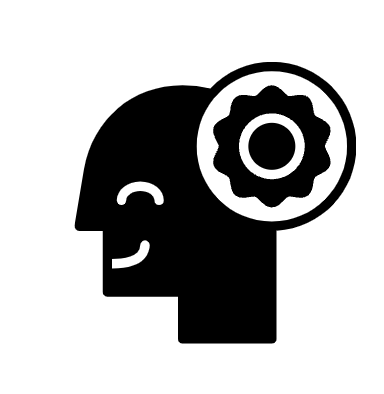
Table of Contents
The content marketing landscape has transformed dramatically with AI technology becoming more accessible and sophisticated. Content teams face growing pressure to produce more high-quality content with limited resources and time. The rise of AI-powered tools has created new possibilities for scaling content production without sacrificing quality or brand voice. Modern marketers are integrating AI throughout their content workflows, from research to optimization.
What is AI Content Marketing?
What is AI Content Marketing?
75% of businesses struggle with producing consistent content that drives results. AI content marketing offers a transformative solution to this challenge.
Definition of AI Content Marketing
AI content marketing leverages artificial intelligence technologies to automate and enhance various aspects of content creation, distribution, and optimization. Unlike traditional content creation approaches that rely heavily on human writers and editors working through manual processes, What is AI Content Marketing? centers on using intelligent algorithms to generate, refine, and distribute content at scale. This technology doesn’t merely replace human effort but augments it by handling repetitive tasks, analyzing performance data, and even drafting content while maintaining brand standards. The fundamental difference lies in efficiency—AI can produce content exponentially faster while maintaining consistent quality across thousands of pieces.
Key AI Technologies Powering Content Marketing
The backbone of AI content marketing consists of several sophisticated technologies working in concert. Natural Language Processing (NLP) enables machines to understand and generate human language with remarkable accuracy. Machine learning algorithms continuously improve content performance by analyzing engagement metrics and reader behavior. Computer vision technology helps with image selection and optimization. Neural networks, particularly transformer models, have dramatically improved the coherence and relevance of AI-generated content. These technologies collectively enable What is AI Content Marketing? to function as a comprehensive solution rather than just a writing tool.
Evolution from Basic Text Generation to Sophisticated Content Systems
Early AI content tools were limited to basic text spinners and template-based generators producing robotic, often nonsensical content. Today’s AI content marketing systems represent a quantum leap forward. Modern platforms can generate nuanced, contextually appropriate content that adheres to specific brand guidelines. The evolution has progressed from rudimentary keyword stuffing to creating strategic content that understands audience intent and delivers genuine value. This transformation has made What is AI Content Marketing? a legitimate strategy for brands seeking quality content at scale.
Creator’s Automated Content Platform
Creator’s platform exemplifies the current state of AI content marketing technology. The system automates the entire content creation workflow while maintaining human-level writing quality and brand-specific tone. Using advanced language models trained on high-performing content, the platform can generate blog posts, product descriptions, and marketing copy that seamlessly aligns with a brand’s established voice. The technology intelligently incorporates SEO best practices, ensuring content ranks well while remaining engaging for human readers. By analyzing content performance, the platform continues refining its output to better match audience preferences and search intent.
Benefits of AI-Powered Content Marketing
The landscape of content marketing has transformed dramatically with AI integration. The benefits of AI-powered content marketing extend far beyond simple automation, offering transformative advantages for businesses of all sizes. Let’s explore how these benefits are reshaping the content creation ecosystem.
Significant Time Savings Across the Content Production Cycle
AI-powered content marketing dramatically reduces production timelines from ideation to publishing. What traditionally took weeks now happens in days or even hours. Content strategists no longer need to spend countless hours brainstorming topics or conducting keyword research—AI tools analyze trends and opportunities automatically.
The writing process itself undergoes remarkable acceleration. AI platforms like Creator can generate full-length, well-structured articles in minutes rather than days. This efficiency extends to editing, formatting, and publishing stages as well. Teams can redirect their energy toward strategy and creative direction while AI handles the labor-intensive production work.
Consistency in Voice, Style, and Quality
One of the primary benefits of AI-powered content marketing is maintaining unwavering consistency. Traditional content creation often suffers from inconsistencies when multiple writers contribute to a brand’s content library. AI solutions solve this problem by learning and replicating your specific brand voice.
The technology ensures every piece follows established style guidelines automatically. Whether producing daily blog posts or weekly newsletters, AI maintains quality standards that would be challenging to sustain with human writers alone. This consistency strengthens brand identity and builds audience trust through recognizable communication patterns.
Enhanced Content Personalization and Targeting Capabilities
Modern consumers expect personalized experiences, and AI delivers. The benefits of AI-powered content marketing shine particularly bright when it comes to creating tailored content for different audience segments. AI analyzes user behavior data to determine preferences, then generates content variations that resonate with specific groups.
This level of personalization was previously feasible only for enterprise companies with substantial resources. Now, even smaller organizations can implement sophisticated personalization strategies. AI can generate different headlines, examples, or content angles based on demographic information, browsing history, or purchase patterns—creating more relevant experiences that drive engagement.
Cost-Effectiveness Compared to Traditional Models
The financial benefits of AI-powered content marketing are compelling. Traditional content production typically involves hiring freelancers ($50-$500 per article), agencies ($1,000-$5,000 monthly retainers), or in-house teams ($60,000+ per content specialist annually). AI platforms dramatically reduce these costs.
With subscription-based AI content tools, businesses can produce dozens or even hundreds of pieces monthly for a fraction of traditional expenses. This cost-effectiveness doesn’t sacrifice quality—today’s advanced AI produces sophisticated content indistinguishable from human-written material. The result is higher content ROI and the ability to scale production without proportionally increasing budgets.
How Different Business Types Leverage AI Content Solutions
Businesses across sectors are harnessing the benefits of AI-powered content marketing in unique ways:
SMBs use AI to compete with larger competitors despite limited resources. Without dedicated content teams, small businesses leverage AI to maintain consistent publishing schedules and quality standards that would otherwise be impossible.
B2B SaaS marketers employ AI to produce specialized technical content efficiently. They can generate in-depth product comparisons, technical guides, and industry analyses without hiring costly subject matter experts for every piece.
D2C brands utilize AI for rapid content production across multiple channels. These brands need constant content refreshes for product descriptions, social media, and blog content—AI enables them to maintain this velocity without extensive teams.
The common thread among these businesses is that AI doesn’t replace human creativity but amplifies it. Tools like Creator enable companies to produce high-performing content aligned with strategic goals while their teams focus on higher-level marketing initiatives that drive business outcomes.
Implementing AI in Your Content Marketing Strategy
73% of marketers now use AI tools to enhance content creation efficiency, according to a recent Content Marketing Institute study. Implementing AI in your content marketing strategy has become essential for brands seeking to maintain competitive advantage while managing resource constraints. The transition requires thoughtful planning and execution to maximize benefits while preserving content quality.
Identifying the Right Content Processes to Automate First for Maximum Impact
When implementing AI in your content marketing strategy, start with processes that consume significant time but follow predictable patterns. Content research, SEO keyword analysis, and performance reporting often yield the highest initial ROI. These foundational activities create bottlenecks for many marketing teams but respond well to automation.
Begin by mapping your end-to-end content workflow, identifying time investments for each stage. Look for tasks requiring repetitive actions or data processing. For example, automating topic research can reduce a 6-hour manual process to minutes while potentially uncovering opportunities human researchers might miss.
Most importantly, measure baseline metrics before implementing AI tools to accurately assess impact. This creates accountability and helps refine your automation strategy.
Establishing Brand Voice Guidelines That Can Be Effectively Translated to AI Systems
For successful AI content implementation, codify your brand voice into clear, actionable guidelines. AI systems require specific parameters to generate content that authentically represents your brand.
Create a comprehensive style guide including:
- Tone descriptors (authoritative, conversational, technical)
- Vocabulary preferences and taboo terms
- Sentence structure patterns
- Brand-specific terminology
- Content examples demonstrating ideal voice execution
The most effective AI implementations include “training content” – examples of high-performing articles that exemplify your brand standards. This provides AI systems with concrete models to emulate when implementing AI in your content marketing strategy.
Remember that brand voice translation requires ongoing refinement. Establish a feedback loop where human editors can flag voice inconsistencies, helping the system learn over time.
Balancing Automated Content Creation with Human Oversight and Editing
While implementing AI in your content marketing strategy promises efficiency gains, maintaining human oversight remains crucial for quality assurance. The most successful implementations establish a hybrid approach where AI handles creation and humans focus on strategic direction and refinement.
Develop clear editorial workflows delineating AI and human responsibilities. For example, AI might generate initial drafts, while editors focus on:
- Verifying factual accuracy and sourcing
- Enhancing storytelling elements
- Ensuring brand voice consistency
- Adding nuanced industry insights
- Optimizing persuasive elements
This collaboration leverages complementary strengths—AI’s speed and data processing paired with human creativity and judgment. In practice, many brands find this balance reduces content production time by 60-70% while maintaining or improving quality.
Integrating AI Tools into Existing Content Workflows and Publishing Systems
Successful AI implementation requires seamless integration with your current technology stack. Begin by identifying connection points between AI tools and existing systems like content calendars, CMSs, and analytics platforms.
Consider these integration priorities:
- Single sign-on capabilities to minimize workflow disruption
- API availability for custom integrations
- Metadata consistency across systems
- Version control protocols
- Approval workflows that accommodate AI-generated content
When implementing AI in your content marketing strategy, avoid isolated tools that create “technology islands.” Each disconnected system introduces friction that diminishes potential efficiency gains. Instead, prioritize solutions offering robust integration capabilities with your core marketing platforms.
Start with small pilot projects to identify potential integration challenges before full-scale implementation. This phased approach minimizes disruption while allowing teams to adapt gradually.
How Creator Streamlines the Entire Content Creation Process
Modern content platforms offer end-to-end capabilities that transform fragmented workflows into cohesive systems. These platforms connect strategy development directly to content execution, eliminating handoff inefficiencies.
Advanced features driving content strategy success include:
- Smart interlinking algorithms that identify relevant internal linking opportunities
- Direct CMS publishing that eliminates copy-paste errors and formatting inconsistencies
- Automated SEO checks ensuring content meets optimization standards before publication
- Content performance tracking tied directly to creation systems
When implementing AI in your content marketing strategy using integrated platforms, teams typically experience 40% faster publication cycles. This acceleration comes from eliminating transition points between systems and automating quality assurance steps that previously required manual intervention.
The most effective implementations maintain a continuous improvement mindset, regularly evaluating which aspects of the content process benefit most from AI assistance while preserving human creativity where it adds distinctive value.
Common Challenges and How to Overcome Them
Content teams adopting AI tools frequently encounter several common challenges. Understanding these obstacles and implementing effective solutions can significantly improve your content strategy outcomes. Let’s explore these challenges and discover practical approaches to overcome them.
Addressing Potential Concerns About Content Originality and Authenticity
Many marketers worry that AI-generated content lacks originality or might trigger plagiarism concerns. This is a valid consideration in the era of common challenges and how to overcome them. To ensure authenticity:
- Implement a human review process to verify originality
- Use plagiarism detection tools to double-check AI outputs
- Customize AI prompts to generate unique perspectives
- Blend AI-generated frameworks with original insights from your team
Creator’s platform addresses this challenge by generating truly original content based on your specific inputs rather than recycling existing material. The key is using AI as a foundation that human editors can enhance with brand-specific expertise.
Strategies for Maintaining the Human Element While Leveraging AI Capabilities
One of the most significant common challenges and how to overcome them involves preserving the human touch. AI efficiency shouldn’t come at the expense of connection with your audience. Consider these approaches:
- Infuse personal anecdotes and case studies after generating the AI draft
- Add brand-specific language patterns that AI might miss
- Include cultural references relevant to your specific audience
- Ensure emotional intelligence in your editing process
The most effective content strategies use AI for structure and research while preserving human creativity and emotional intelligence. This balanced approach allows teams to maintain authentic connections while addressing common challenges and how to overcome them.
Navigating the Learning Curve When Implementing AI Content Tools
Adoption hesitation often stems from uncertainty about mastering new technologies. When facing common challenges and how to overcome them, consider:
- Start with smaller projects before scaling to full content calendars
- Create standardized prompts that team members can customize
- Document successful workflows to establish best practices
- Provide comprehensive training on prompt engineering
Creator’s platform offers intuitive interfaces that flatten this learning curve, with guided templates that help teams quickly adopt AI capabilities without extensive technical knowledge.
Ensuring SEO Best Practices Are Maintained in AI-Generated Content
SEO optimization remains crucial when addressing common challenges and how to overcome them. To maintain search performance:
- Verify keyword integration feels natural, not forced
- Ensure proper header structure and semantic relevance
- Check technical SEO elements like meta descriptions and alt text
- Monitor performance data to refine your approach
The integration of SEO best practices should feel seamless rather than mechanical, which requires strategic human oversight of AI outputs.
How Creator’s Platform Ensures Brand-Specific Tone and SEO Optimization Simultaneously
Achieving both brand consistency and SEO performance represents one of the core common challenges and how to overcome them. Creator addresses this through:
- AI models trained on your existing high-performing content
- Brand voice parameters that maintain consistency across all outputs
- Smart keyword integration that prioritizes readability
- Performance analytics that help refine your approach over time
When properly implemented, AI tools should enhance rather than replace your brand’s unique voice while still delivering the technical elements needed for search visibility. This balance is critical for content teams looking to scale production without sacrificing quality or authenticity.
Conclusion
AI content marketing represents a significant opportunity for brands to scale their content efforts while maintaining quality. The technology continues to evolve, offering increasingly sophisticated capabilities for content creators. Successful implementation involves strategic integration rather than wholesale replacement of human creativity. Creator offers a comprehensive solution for brands looking to leverage AI in their content marketing strategy. Taking the first step toward AI content marketing doesn’t require massive changes—start with specific use cases and expand from there
Get started with AI-powered content marketing today



